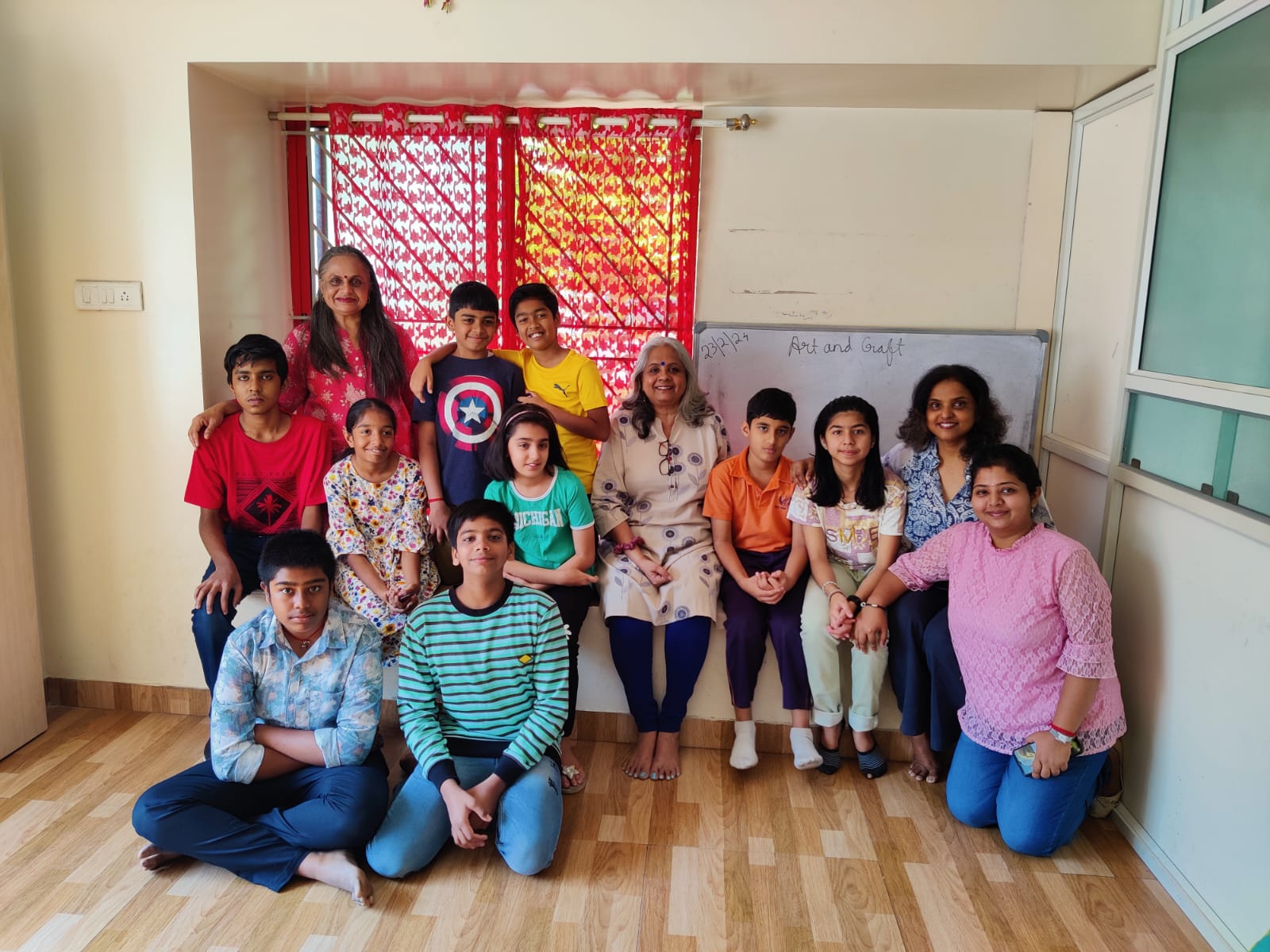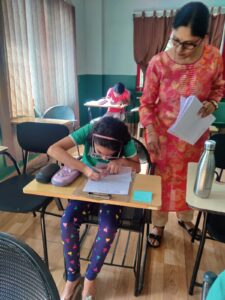Admissions open even on Monthly basis
Unschooling is a program for children where the learning takes place beyond the 6” inch screen . Children are taught life skills through role plays that includes concepts such as banking (handling money), gardening, conversational skills, managing emotions, art and craft etc. Children can enjoy physical classes along with academic fun. (Of course with Social distancing, masks and sanitizers!)
An academy for young people whose parents are concerned and committed towards their better and holistic growth, not just academics.
Our main aim is working with children who either do not wish to, or are unable to cope with rigid curriculum and pure academics. After understanding the child holistically, a personalized plan is made to enhance each child’s abilities and support him/her to grow and learn individually in the best way possible. This being a very sensitive way of building up the child’s potential, we need equal participation from parents to work as a team with our highly committed faculty, to ensure that the student not only learns, but also grows up to become an asset to the family, society and country.
We at Gurukul offer
1-PSE – Pyscho-Socio-Educational assessment, which helps in understanding the child’s style of understanding things around him, his social skills and how he manages them and his educational level and understanding of the same.
2-CDA-Child Development Assessment which helps to understand the developmental issues of a child.
3-Admission to NIOS-OBE- Level A, B and C under
(BANJARA FOUNDATION) AAO08047
(National Institute of Open Schooling- Open Basic Education)
We even teach children for NIOS class 10 and 12 for certain subjects
Admission opens for children of any age, any background and any academic level, throughout the year.
Very reasonable fee, based on the needs of the child and affordability of parents.
Days: Monday to Friday
Timings: 10:00 am to 2:30 pm
Tel: 8867192260, 8861421666, 9035679801
Each child will be educated and trained individually depending on the capabilities, intelligence, interest and inclination, leading up to 10th standard certification if interested, otherwise providing life skills and improve emotional intelligence.
No uniform, time-table, no deposits or long term fees. Active involvement of the parent is our only requirement. Together we can achieve wonders, and ensure that the child gets an opportunity to bring out his/her best potential in any field.


Admissions Open! Contact Banjara Office for more details…..
Certificate in Early Childhood Care and Education is a distance learning program offered by NIOS and is recognised by the Government of India. This course provides vocational inputs to those who deal with Children when they are in their early childhood. It helps parents and also early childhood care/educational workers to provide holistic development of children. This recognised certificate also helps to open a Day care center, or to work as an Administrative coordinator in a school.
